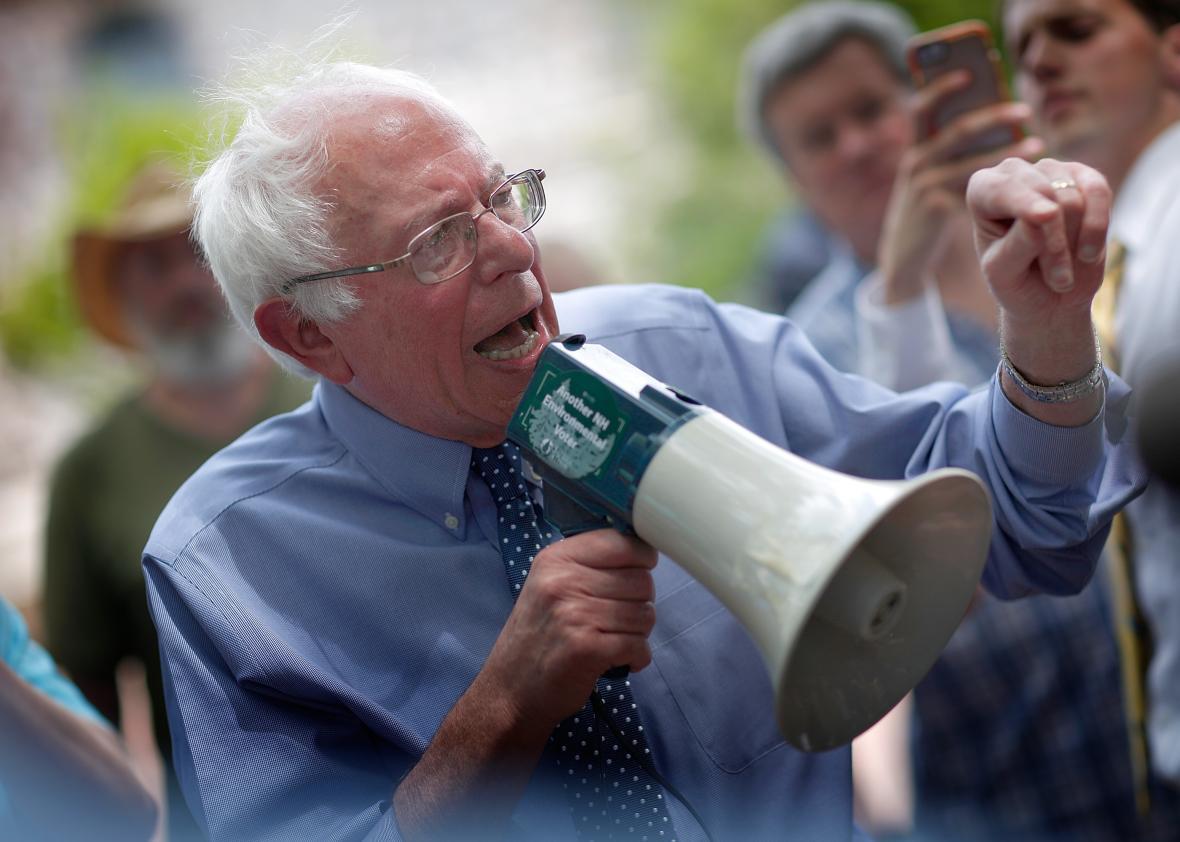Bernie Sanders has a legitimate shot to sweep the first two nominating contests of 2016. That’s the big takeaway from the latest polling from NBC News and the Wall Street Journal, which found Sanders and Hillary Clinton running neck and neck in Iowa and New Hampshire with three weeks to go until the former and four until the latter.
A Sanders sweep—possible, albeit still not probable at this point—would fundamentally alter the Democratic race. In the span of eight days, the self-styled democratic socialist would be transformed from establishment gadfly to real-life Democratic challenger. The political press, long desperate for intrigue and uncertainty in a race that has so far been devoid of it, would shower Sanders with attention and praise while simultaneously questioning whether Hillary Clinton was doomed to suffer the same fate she did in 2008 at the hands of another unlikely challenger. (Expect every talking head on cable TV to remind you in unison that only once in modern political history has a nominee from either party failed to win either of the first two states—a stat that sounds rather ominous until you consider the non-incumbent sample size.) Bernie, in turn, would see a bump in the polls and an uptick in his fundraising, all at a time when many would-be primary voters are paying attention to the 2016 campaign for the first time. All this would be a big deal for Sanders.
What would not change, though, is that Clinton would remain the clear favorite for the Democratic nomination.
Even if Hillary staggers out of New Hampshire with her second loss in as many contests, she’ll still have the same massive advantages she enjoys today: the campaign and super PAC cash, the ground game, the endorsements, the pledged superdelegates, and the general support of a party establishment that won’t soon forget that her challenger is not technically even a part of the Democratic Party. An unexpected loss in Iowa and a less surprising one in New Hampshire wouldn’t change that.
She’d also have a chance to get back on her feet—and fast. Consider what comes next: Nevada (Feb. 20) and South Carolina (Feb. 27), two significantly more diverse states than lily-white Iowa and lily-whiter New Hampshire, and two places where Clinton currently enjoys massive leads in the polls. According to the RealClearPolitics rolling average, Clinton holds a 20-point advantage in Nevada and a whopping 40-point lead in South Carolina. March brings better news still for the former secretary of state, starting with a Super Tuesday slate that includes friendly territory in the form of southern states like Arkansas, Alabama, Tennessee, Texas, and Virginia. The rest of the month, meanwhile, includes several big, delegate-rich contests that she won eight years ago during her battle with Barack Obama: Michigan, Florida, and Ohio. Yes, Sanders could have the momentum this time next month, but it’ll be on him to to find a way to keep it as he heads into significantly more challenging terrain than Iowa or New Hampshire, which were always going to offer his best chance at pulling off an early upset or two.
None of this is to say that Clinton has the nomination locked up already. She doesn’t. But if Iowa and New Hampshire are must-wins for anyone, it’s Sanders. Hillary can—and likely would—survive a slow start and still be the one standing on stage at the Democratic National Convention when the balloons come down this summer. Bernie, though, has no such margin of error.
